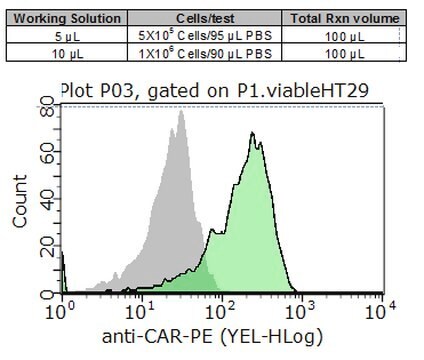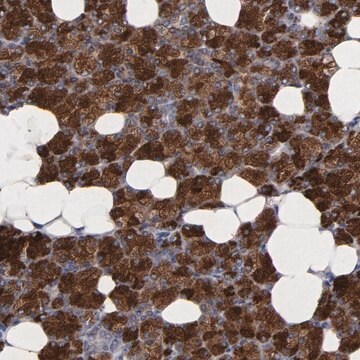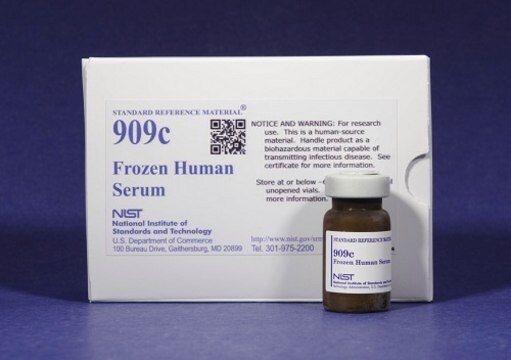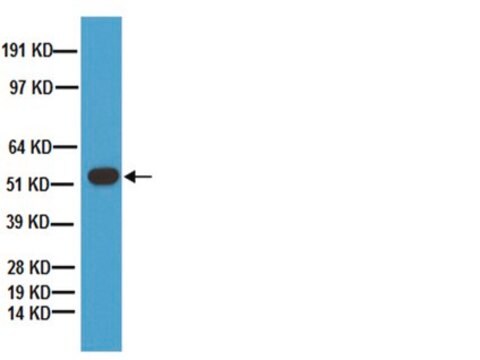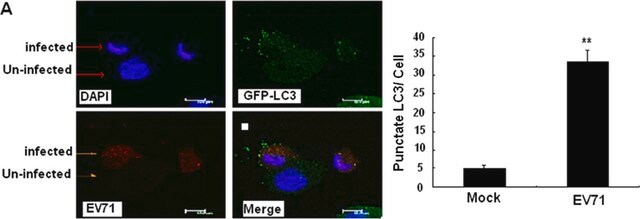05-644
Anti-CAR Antibody, clone RmcB
clone RmcB, Upstate®, from mouse
Sinónimos:
46 kD coxsackievirus and adenovirus receptor (CAR) protein, CVB3 binding protein, CVB3-binding protein, Coxsackievirus B-adenovirus receptor, coxsackie virus B receptor, coxsackie virus and adenovirus receptor
About This Item
Productos recomendados
biological source
mouse
Quality Level
antibody form
purified immunoglobulin
antibody product type
primary antibodies
clone
RmcB, monoclonal
species reactivity
human, rat, mouse
manufacturer/tradename
Upstate®
technique(s)
immunocytochemistry: suitable
western blot: suitable
isotype
IgG1
NCBI accession no.
UniProt accession no.
shipped in
wet ice
target post-translational modification
unmodified
Gene Information
human ... CXADR(1525)
General description
Specificity
Immunogen
Application
1-2 μg/mL of a previous lot showed positive immunostaining for CAR in HeLa cells, hCAR transfected CHO cells, but not in untransfected CHO cells fixed with 4% paraformaldehyde and permeabilized with 0.2% Triton-X.
Quality
Western Blot Analysis:
1:500 dilution of this antibody detected Car on 10 µg of mouse small intestine lysates.
Target description
Physical form
Other Notes
Legal Information
¿No encuentra el producto adecuado?
Pruebe nuestro Herramienta de selección de productos.
Storage Class
10 - Combustible liquids
wgk_germany
WGK 1
Certificados de análisis (COA)
Busque Certificados de análisis (COA) introduciendo el número de lote del producto. Los números de lote se encuentran en la etiqueta del producto después de las palabras «Lot» o «Batch»
¿Ya tiene este producto?
Encuentre la documentación para los productos que ha comprado recientemente en la Biblioteca de documentos.
Nuestro equipo de científicos tiene experiencia en todas las áreas de investigación: Ciencias de la vida, Ciencia de los materiales, Síntesis química, Cromatografía, Analítica y muchas otras.
Póngase en contacto con el Servicio técnico